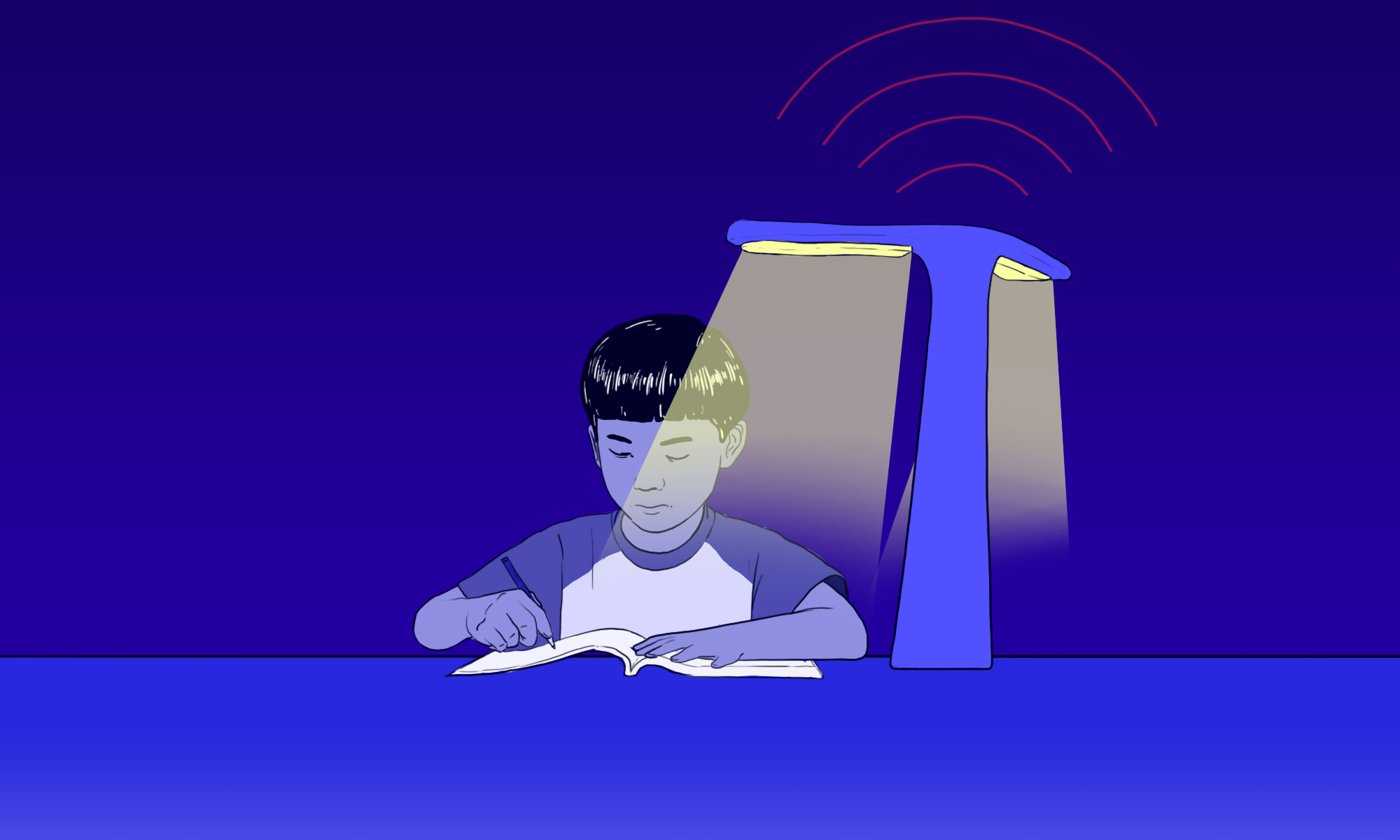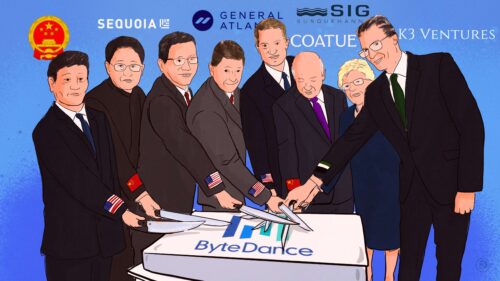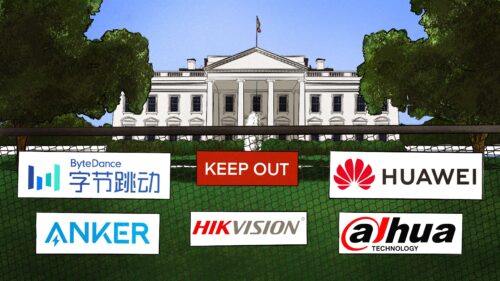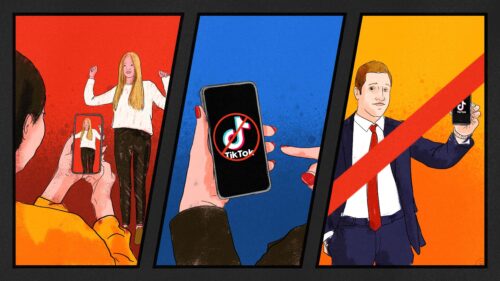Edutech: ByteDance invents entirely new product category with Dali Smart Lamp
In 2020, ByteDance — the company globally famous for TikTok — began selling a desk lamp that uses AI to help kids do their homework and allows busy parents to supervise remotely. The product became a best seller and has sparked a multibillion-dollar “Great War of a Thousand Lamps.”

Chinese tech company ByteDance has a history of innovation that includes creating the global cultural phenomenon that is TikTok. Now ByteDance has invented an entirely new product category with the Dali Smart Lamp (大力智能台灯), a desk light with a 5G-enabled phone and AI-powered camera that helps parents supervise their children’s homework remotely.
After launching in the summer of 2020, ByteDance was selling 10 million yuan ($1.5 million) worth of Dali Smart Lamps a month on Alibaba’s Tmall, priced at either $120 or $170, depending on the model. In a single year, ByteDance could make more in revenues (in Chinese) from the lamp than most startups make across all their product lines.
That success has inspired many of China’s leading tech companies, including Alibaba, Huawei, Tencent, and Xiaomi, to pile into the new industry, in a frenzy similar to that currently gripping the electric vehicle industry.
Responsible remote parenting
China’s young parents are time-starved but will spend nearly anything on educational services and products that they believe will help their kids get ahead in the country’s cutthroat college admissions race. Dali Smart Lamp’s marketing video (in Chinese) shows a glamorous young mother who has to go on a three-day business trip checking her son’s homework as she gets her hair done for a photo shoot: The message is that the technology can help parents both have a life and be responsible about their children’s education.
The product itself is a T-shaped desk lamp with curvy lines and a phone-like screen at its base, camera sensors, and a connection to the cloud (see this video in Chinese). It can define a word in a book on a desk with the point of a student’s finger, read out English passages, and help solve math problems. Children can upload their finished homework with one click when they are done, passing it on to parents who can check it.
The lamp is a product of ByteDance’s new education arm named Dali, literally, “Great Effort” (大力 dà lì). Launched in October 2020, the unit already employs more than 10,000 employees (in Chinese) and is the first independent brand wholly owned by ByteDance (TikTok and Douyin are part of ByteDance’s main brand).
Dali aims to cater to all demographics from pre-kindergarten all the way to college and adult education. The potential market is huge: China’s education sector is on track (in Chinese) to become a $690 billion market by 2025.
The Great War of a Thousand Lamps
As news of ByteDance’s billion-dollar smart lamp jackpot sent shockwaves across Chinese media (in Chinese), tech entrepreneurs have descended, like vultures, into what internet users call (in Chinese) the “Great War of a Thousand Lamps.” Major players include (links in Chinese):
- Tencent, whose smart lamp provides homework assistance and corrects sitting posture;
- Huawei and Xiaomi, which each have similar products; and
- TAL Education and New Oriental Education, whose main revenues come from traditional offline and online classes and tutoring, and which have each devoted an entire division to developing education hardware.
Lamps are not the only edutech hardware on offer.
- Baidu’s Homework Help (作业帮), a popular app and streaming education service that aids students to complete China’s arduous homework tasks, is working on an education tablet computer (and will launch its first smart lamp around August this year).
- Live tutoring app Yuanfudao (猿辅导) is currently developing a smart writing board.
It’s not just remote learning anymore
For ByteDance and other tech companies, the new suite of hardware products is designed to reinvent the physical space in which learning occurs. In recent years, as China’s rising middle class spends growing amounts of money on educating its children, companies that use technology to expand access and improve pedagogy have enjoyed glitzy IPOs in New York and Hong Kong.
Those early successes gave businesses the impression that the value of edutech companies was driven mainly by solving issues of connectivity — remote learning and virtual classrooms. This business thrived during the pandemic.
Yet behind the success of the Dali Smart Lamp is the realization that education is ready for a deep tech makeover. Beyond simply connecting students to teachers and learning materials, internet companies now see their future in the sector in terms of integration: supercharging old tools with new tech.
In doing so, Dali wants to reimagine the way students relate to their teachers, classmates, and parents. Technology, especially the smartphone, feels inimical to good pedagogy, but it doesn’t have to be, said Yáng Lùyù 阳陆育, Dali’s head of research.
“We think that, in the end, education must be a combination of hardware and intelligent solutions, in addition to human services,” said Yang. “That’s why we don’t rule out any product that might be able to offer our paid services.”
Though unorthodox, the education detour is not so different from the way China’s tech companies have approached the auto industry of late. That sector is also witnessing a marriage of hardware and software, as internet companies pair up with traditional automakers: Baidu with Geely, Huawei with BAIC, Alibaba with SAIC, and Tencent with Evergrande.
Yet while EV makers face uncertainty about government policies and the caprices of buyers, the education sector seems to stand on firmer ground, buttressed by a simple yet powerful premise: Parents will always pay handsomely for their kids’ education.
Correction: An earlier version of this piece listed Dali Smart Lamps as having sold 10 million units a month. It was actually 10 million yuan.






